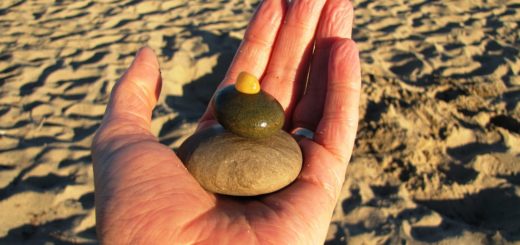Reasons Not to Drink
Here in Korea, drinking is not merely a commonplace activity but a deeply embedded ritualistic element of social life. And I work at a university, where the social ritual aspects of the “drinking culture” are exacerbated by the universal college-age confusion of new-found debauchery with burgeoning freedom. Hence, I am often met with skeptical double-takes and wide-eyed “Why nots?” when I inform students or acquaintances here that I do not drink. I get similar responses in Canada, of course, but they are more likely to be tinted with resentment, as though my preference were an implicit condemnation of others, an attempt to restrict their precious freedom, or, worst of all, a rejection of the basic requirements of being a Canadian in good standing. (“Our beer,” as Nietzsche summarized this sensibility with reference to his own homeland’s national alcohol religion.)
For the record, I do not believe that alcohol as such is evil, or that everyone who ever has a drink is immoral. The issue is not primarily moral for me at all, but rather, shall we say, spiritual. It is a matter of philosophic judgment and intellectual independence. I grew up in a family with a very healthy and non-dogmatic attitude toward drinking. In my house, alcohol consumption meant a glass of wine with holiday meals, a glass of champagne on New Year’s Eve, a glass of liqueur after Christmas dinner, or perhaps a daiquiri once a year during an extended family gathering. Alcohol was purely a decorative addition to special family events, a bit of quasi-luxurious novelty, equivalent to the holiday fudge or the children’s Easter baskets. There were no beer drinkers in the house, no teenage binge parties, and “hard liquor” was an indulgence reserved for the rarest occasions and limited to very small quantities. I never saw a single member of my immediate family drunk, and extended family members who drank to intoxication were typically the subject of hushed and frustrated conversation between my parents in the car on the way home.
Hence, I have neither the traumatized anti-alcohol obsession of one who saw his family ravaged by drink, nor the artificial rigidity of one raised in a “strict” teetotaling environment. And yet, as a matter of practical choice and personal principle, I do not drink and have no wish to do so, and furthermore I regularly discourage drinking in serious students I come to know well in any sort of mentoring or philosophic teaching relationship. Why? Allow me to offer a few of my reasons.
Alcohol, both in direct effect and (more insidiously) as a life habit, encourages moral conformity and weakens independent thinking.
A drinker may be a successful scholar or politician; regular alcohol consumption might even be a genuine asset in the academic or political life. For scholarship and democracy are about consensus, and alcohol is a great leveler, shaving off those rough edges of precise discernment and nuanced disagreement that tend to complicate the spirit of conciliation and accommodation that is so essential to building and maintaining consensus. But for all the reasons that alcohol facilitates scholarship and politics, it thwarts genuine philosophy and statesmanship, which are never about consensus, getting along, or reaching agreement. The pursuit of wisdom, whether theoretical or practical, is the domain of individual minds unhindered by the siren song of consensus, the all-too-human urge to get along, or the willingness to resign oneself to compromised or “close enough” solutions. Hardness, clear-eyed judgment, an enthusiasm for discerning hidden differences and distinctions, infinite patience with an elusive idea, and a tendency to experience the comforting warmth of togetherness-for-its-own-sake as a frustrating form of distraction or surrender — these are intrinsic characteristics of a soul suited to the independent life, which is to say the life of independent thought.
Even those who are most sanguine about alcohol routinely advise against drinking alone, citing it as a common sign of chemical dependency, depression, and in general an unhealthy inclination to escape from troubling emotions or life concerns, which in fact will only make the problems worse. Serious thought, by contrast, is in its most definitive form a solitary activity. The same is true of serious prayer, or serious artistic production.
The point of this contrast is not merely that alcohol consumption is inherently ill-suited to the very condition which is best suited to life’s definitive activities. After all, the same might be said of many genuinely agreeable or innocuous activities: having a picnic, enjoying family life, and building a house. The point is rather that the desire to drink when alone is indicative of a soul that feels uncomfortable or unnatural in solitude; hence the wish to befog the realm of inner experience, to blur the outlines of private being (whether slightly or severely) with the pleasantly numbing effects of drink. This demonstrates that alcohol is not merely best enjoyed in company (like picnics, family life, housebuilding), but is antithetical to being truly alone with oneself, at a fundamental level. Drinking alone is the activity of one for whom solitude is a (slightly or severely) disturbing or frightening prospect that calls forth a craving for the comforting “noise” of an undemanding companion — alcohol usually being the regular drinker’s most beloved friend, whether he recognizes this or not.
If your dearest friend asked you to stop drinking permanently, would you do it? If not, then alcohol, which is typically rationalized as a lubricant of social cohesion, has in fact obscured your capacity to live as a social animal at all.
I was never “a drinker” in the sense in which that term is normally applied. So when, as a very young man, my dearest friend asked me to stop, I did so without difficulty. Each act of detachment from the life wedded to the crowd — the child’s life of emotional conformity, needful belonging, easy acceptance — is a declaration of independence and an assertion of individualism. Sometimes a true friend reveals a corridor to such an act of detachment — indeed, this might be of the essence of true friendship, which never has anything to do with such trivialities as “belonging” and “acceptance” — and thereby affords you an opportunity to shed another layer of the social skin which, if allowed to adhere beyond its age of youthful utility, will gradually constrain, distort, and deform the soul precisely where it needs to free itself for its most important flights.
By reducing a man’s spiritual stature to an agreeable or unchallenging fit for his surroundings — which, as explained above, is the essential character and aim of drinking — an alcohol habit is one of the surest ways to ensure that one never finds out what one is.
I recently watched an interesting interview with jazz guitarist Pat Metheny, whose long and varied career has run the gamut from ultramodern “new jazz” reformer to elder statesman and defender of the flame. As part of his explanation of how he has continued to develop and improve his technique and improvisational skills throughout the decades, whereas most performing musicians, including many of the best ones, tend to plateau early and then rest on their laurels and reputations from then on, Metheny offers the following personal rumination:
In my case, I started out really young with musicians who were, let’s say, indulgent in stuff. I witnessed them, at a young age, get worse and worse and worse as the night went on. That planted a seed: “Well, man, I don’t want to sound worse, I want to sound better. I’m not going to do that. So I’ve never had a drink, I’ve never tried drugs, or any of that…. And I have to say, at this point, fifty years now down the line, that has some real benefits. I can make a testament that, you know, knowing many people my own age, who had very different paths in that department — some of them very close to me — who are not even on the planet anymore, there’s something to be said for that.
“I don’t want to sound worse, I want to sound better.” That sums up in the simplest possible form, almost with the pithiness of a Pythagorean aphorism or a haiku, why “the drinking culture” is anathema to my way of thinking and living, or rather to thinking as my way of living.
By way of conclusion, and perhaps also in consideration of the young people I have mentored in this area over the years, I leave you with Arvo Pärt’s Für Alina, inspired by an eighteen-year-old’s departure for a new life in a new land, and interpreted here by Pat Metheny, on his custom-made 42-string Pikasso guitar.


